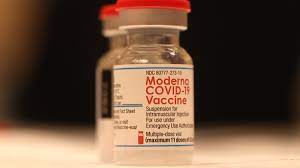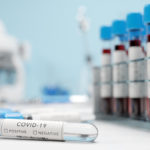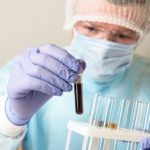A study suggested that the updated booster shot produced higher levels of neutralizing antibodies against the Omicron subvariants BA.4 and BA.5 than the first booster, the company said.
https://www.nytimes.com/2022/11/14/us/politics/moderna-booster.html?smid=url-share
WASHINGTON — A new study by Moderna suggests that its updated coronavirus booster strengthens a key component of the immune system’s defense against the Omicron subvariant that accounted for most infections in the United States in recent months.
The company announced the findings in a news release on Monday. The underlying data has not yet been published or peer-reviewed, but it has been reviewed by federal regulators.
The data indicates that Moderna’s new booster generates significantly higher levels of neutralizing antibodies against the subvariant, BA.5, and another Omicron subvariant, BA.4, than the previous booster, the company said. The federal government replaced the original boosters from Moderna and Pfizer-BioNTech with updated shots in September.
The study is the largest to date of one of the new shots, comparing hundreds of people who received either the updated booster or the original one.
While federal officials said they were heartened by the findings, the data underscored the problem in chasing a virus that invents new defenses against immunization faster than vaccine manufacturers can design and produce modified shots. The government is confronting a crowded landscape of fast-moving Omicron subvariants that threaten to evade the population’s immunity from vaccinations and previous infections.
When the government first decided on the makeup of the new booster this past summer, it targeted BA.4 and BA.5. The latter of those subvariants was responsible for a vast majority of infections in the United States in the summer and early fall, and it still accounts for about 30 percent of cases. Another fast-growing Omicron subvariant, BQ.1.1, could become dominant by Thanksgiving, said Dr. Stephen Hoge, the president of Moderna.
Dr. Hoge said the company’s lab tests suggested that the new booster also produced robust levels of antibodies against that surging subvariant, although far fewer than against BA.4 and BA.5. He cautioned that the BQ.1.1 tests were preliminary and involved only 40 participants.
Pfizer announced similar findings this month about the antibodies produced by its updated booster against BA.4 and BA.5. But neither Pfizer nor Moderna can say whether the revised shots result in less disease.
The Centers for Disease Control and Prevention is overseeing studies of the vaccines’ effectiveness, but those take significantly more time than studies of antibodies that form the body’s first line of defense. Results are not expected for months.
Among those who had a prior coronavirus infection, the company said, the updated shot produced about five times the level of antibodies against BA.4 and BA.5 as the old shot produced. Among those with no prior infection, the new shot induced more than six times the level of antibodies as the old shot. The results were consistent among both older and younger adults, Moderna said.
Those findings seem to dovetail with Pfizer’s study. Among 76 participants over age 55, the company said that the level of antibodies in those who had received its updated booster was four times as high as in those who had received the original one.
In Moderna’s study, Dr. Hoge said, the group that received another dose of the original booster and the group that received the new booster were comparable in age and rates of prior infection.
But there was a difference in when the two groups received their shots. A majority of those who received a second dose of the original booster got it in the spring, about four months after their last shot, Dr. Hoge said. Most of those who received the updated booster got it about nine months after their last shot.
Some outside scientists have questioned whether that factor could account for the higher antibody levels in people who received the updated booster — a criticism they also leveled against Pfizer’s study.
Neither company “controlled for length of time after the last dose,” Dr. Offit said, adding, “There are a lot of problems with that.” He said the longer interval after the third dose could have strengthened the immune system of participants who received the updated booster, leading to higher antibody levels.
Dr. Hoge said a detailed analysis of the data showed that the difference in timing of the doses did not explain the difference in antibody levels.








